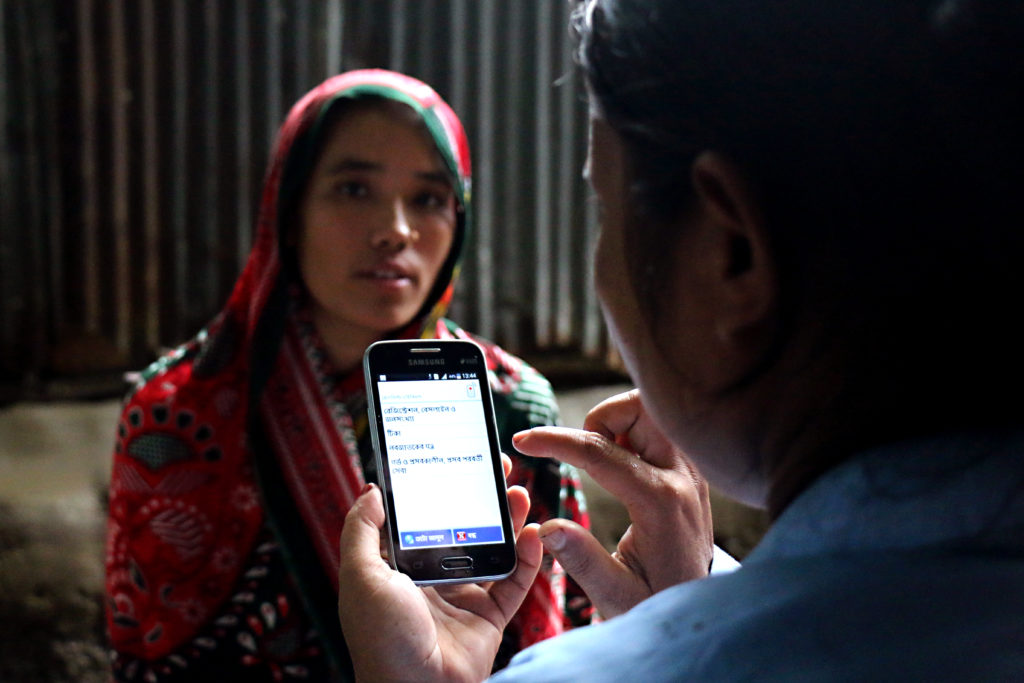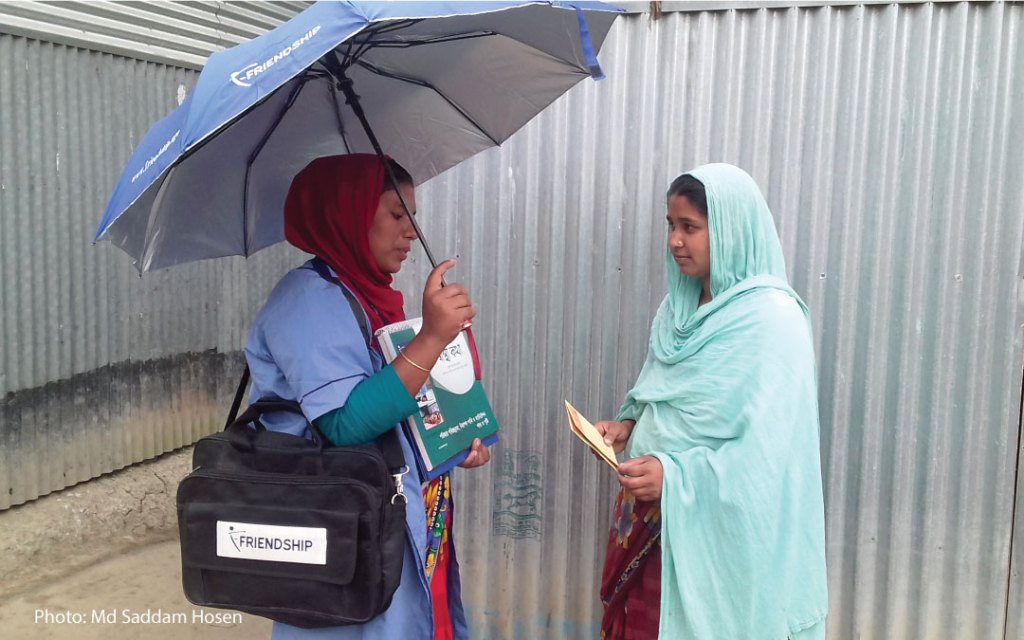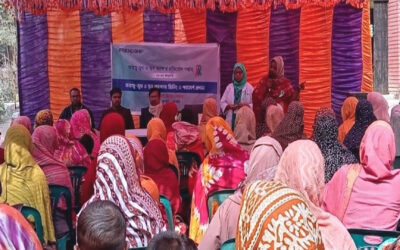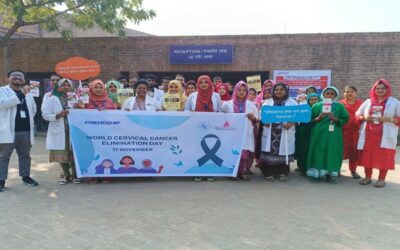Friendship medics-aides deliver doorstep healthcare using mobile app mHealth

by NAUSHAD ALI HUSEIN
March 2, 2020
Shahjahan, 40, is suffering from severe diarrhoea. Given the nearest hospital is a four-hour journey over river and land, Shahjahan’s condition could easily prove fatal without medical attention. But unlike many other river islands in this remote part of Gaibhandha, the residents of Paglar Char know exactly who to call: Aleya Parvin, the island’s Friendship Community Medic-Aide (FCM).
Upon arriving at Shajahan’s house, Aleya enters his symptoms into the mHealth app on her mobile phone. The app is a part of an electronic healthcare system developed by Friendship NGO to provide healthcare to the most difficult-to-reach regions in the world. It tracks Shahjahan’s location through GPS, and draws up his age, recent medical history and social and family background from Friendship’s patient database. All this information prompts Aleya’s next steps.
She makes an oral saline solution and tells the family what they have to do: give Shahjahan lots of fluids, ensure his surroundings are clean, and if the diarrhea does not subside in three to four days, go to the nearest hospital.

The app also lets Aleya correspond live with a doctor at Friendship’s head office in Dhaka if necessary. She can send photographs and request the doctor to call or send instructions via SMS. Aleya can also then schedule a follow-up visit.
Friendship has been implementing this model into its regular health program in the remote riverine islands in the north of Bangladesh for the last 12 years. The model has increased the quality of services significantly among the community health workers known as Friendship Community Medic-Aide (FCM) in those remote areas. Constant monitoring of their work and surveillance of diseases have been possible in real time over the work of community health workers in the field. All the beneficiaries are under the coverage of medical doctor care through mhealth. Patients are also getting advanced healthcare through the services offered by the digital Doctor Centre.
Because of their distance from the mainland, the people of the chars, or river islands, have no access to doctors. Moreover, these landscapes are constantly moving due to erosion. “Every year when the land erodes,” says Aleya, “people have to move their homes helter-skelter wherever they can.”
To mitigate these issues, in 2002 Friendship converted an old river barge into a fully equipped floating hospital that would serve the ever-shifting islands and shores of the northern Jamuna river.
In 2006 Friendship began training teams of medics, mostly women, to monitor and give basic healthcare to residents of their villages.
Each time Aleya assesses a patient using mHealth, Friendship’s proprietary mobile app, their information is instantly updated, and accessible by doctors at Friendship’s offices, and on board the floating hospitals.
Aleya had always yearned for a meaningful life and profession, but her journey has been a difficult one. She struggled hard to ensure she received an education. She walked miles to school and had to complete household chores before she could study at night under the feeble light of a kerosene lamp. She was able to attend school until the age of 13 when she was suddenly married off.
Much later, she met Ambiya, a Friendship medic working on her char, who inspired her.
“We were looking for someone to help us,” says Ambiya. “Aleya seemed very capable, so I asked her to join us and be an FCM.” Aleya learned to measure temperature and blood pressure, and diagnose and treat common symptoms like diarrhoea and dehydration. FCMs are also able to add to their income by selling over-the-counter medication.
“At that time, she was shy, and unable to address people properly,” says Ambiya. “Now she has become so confident. People listen to her and follow her instructions.”
In 2016 Aleya was selected to help pilot the mHealth program.
From being a stay-at-home wife, Aleya has become an indispensable part of her community, providing an important public service.
“The people respect us,” says Aleya. “It feels good to be able to do this for them.”



